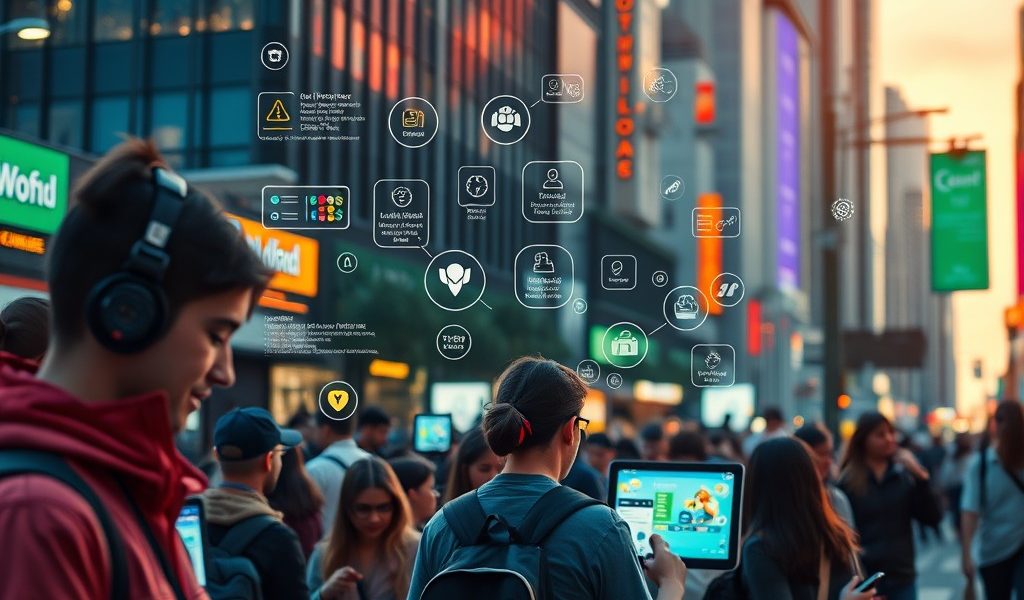
The digital revolution has ushered in a new era of urban development, with smart cities at its forefront. One of the most innovative and engaging tools being utilized in these cities is gamification. By integrating game mechanics into non-gaming environments, cities are successfully increasing public participation, encouraging sustainable behavior, and enhancing the overall quality of urban life.
Gamification Mechanics in Smart Cities
Gamification involves incorporating elements such as scores, badges, rankings, levels, and virtual rewards into everyday applications and processes. This approach not only makes mundane tasks more appealing but also fosters a sense of community and competition among citizens. The potential of gamification in transforming city life is immense, aiding in:
- Introducing and adopting new technologies.
- Encouraging new, sustainable habits.
- Improving services and human experiences.
- Elevating engagement and loyalty in civic processes.
- Raising awareness and driving efficiency.
Real-World Applications of Gamification
Several mobile apps and projects are already integrating gamification principles to promote sustainability and energy efficiency. For example, the JouleBug app encourages users to save energy by completing tasks like turning off lights or conserving computer power. Users earn points, which translate into badges and rankings, fostering a competitive yet environmentally friendly spirit. [Source: Alberto Vanolo, “Cities and the politics of gamification”]
Another initiative, “The Age of Energy”, engages users in an award-winning game designed to encourage energy-saving behaviors. Through this interactive experience, citizens can better understand the impact of their energy-related decisions, aligning with global goals to reduce carbon footprints. [Source: City-zen project]
Moreover, applications like Ecogator aid users in efficient energy consumption through gamified shopping and daily usage modes. This tool exemplifies how gaming mechanics can serve as powerful motivators for sustainable behavior, despite challenges in awareness-raising. [Source: European Sustainable Energy Award 2015]
The Role of Social Interaction and Community Initiatives
Games like the Social Power Game leverage social interactions and competition to inspire long-term sustainable energy use. By fostering neighborhood-based contests, this approach not only promotes individual behavior changes but also strengthens community bonds. [Source: De Luca, V.; Castri, R.]
Conclusion: Towards Smarter, Sustainable Cities
As cities evolve into smarter, more connected communities, the integration of gamification provides a dynamic and effective tool for managing change. By motivating citizens to engage in sustainable practices through interactive and enjoyable experiences, cities can harness the power of human nature to achieve significant environmental and social goals.
The conclusion is clear: gamification isn’t just a tool for entertainment. It is an essential component of the modern smart city, facilitating the transition to a sustainable and engaged urban lifestyle.
References
- Institute of Physical Energetics (IPE), Latvia, ITCity Project.
- Alberto Vanolo, “Cities and the politics of gamification”, DOI link.
- City-zen project, The Age of Energy.
- Ecogator, The EcoGator mobile app.
- De Luca, V.; Castri, R. The Social Power Game: A smart application for sharing energy-saving behaviours.